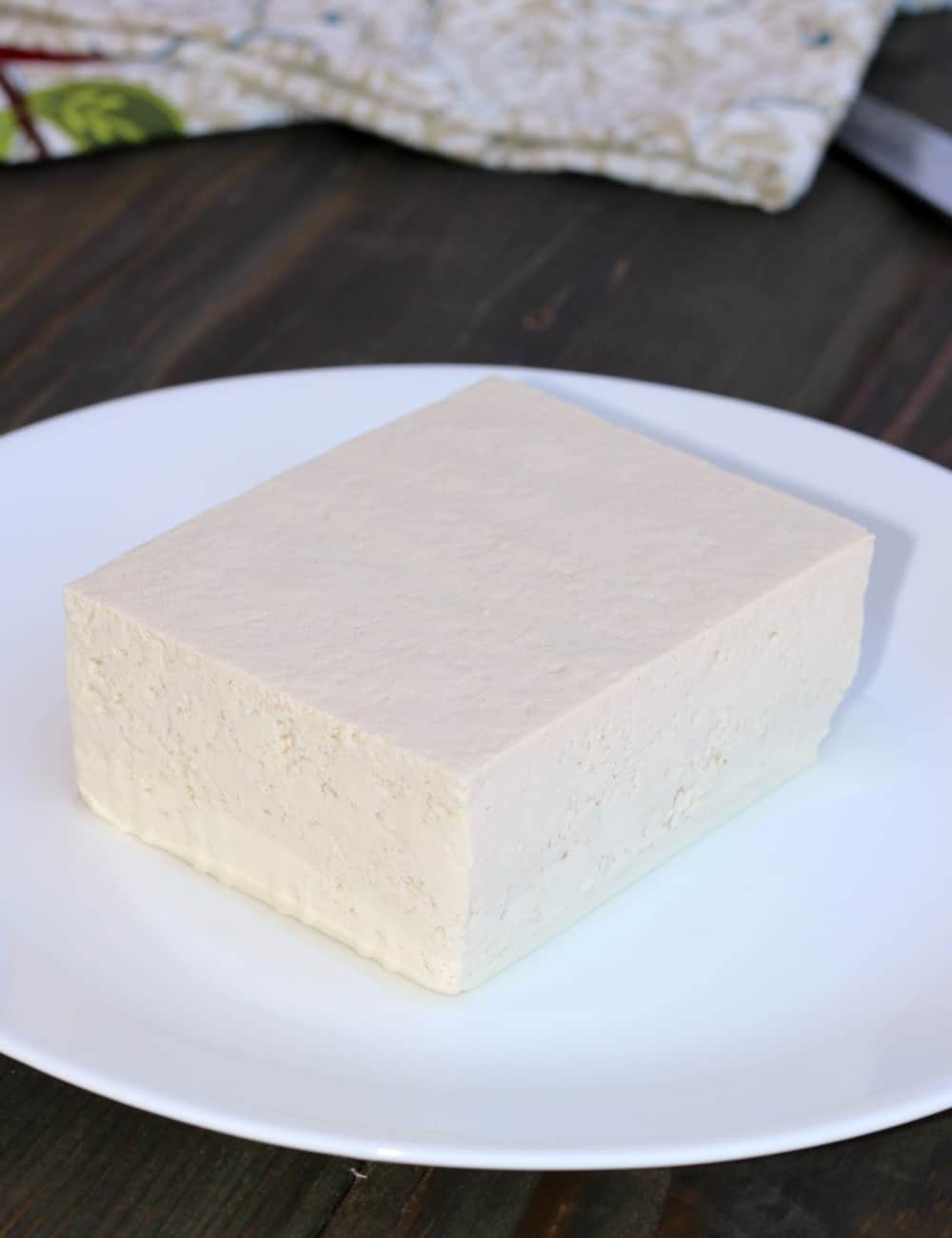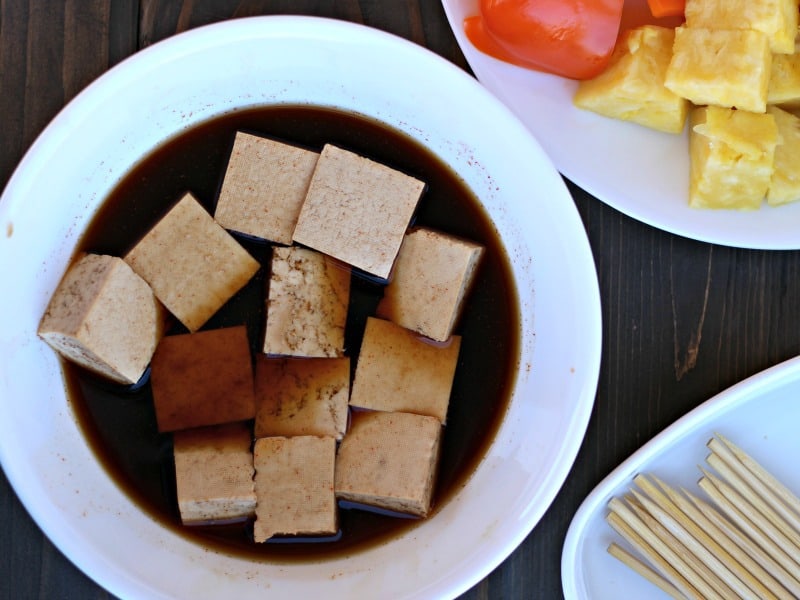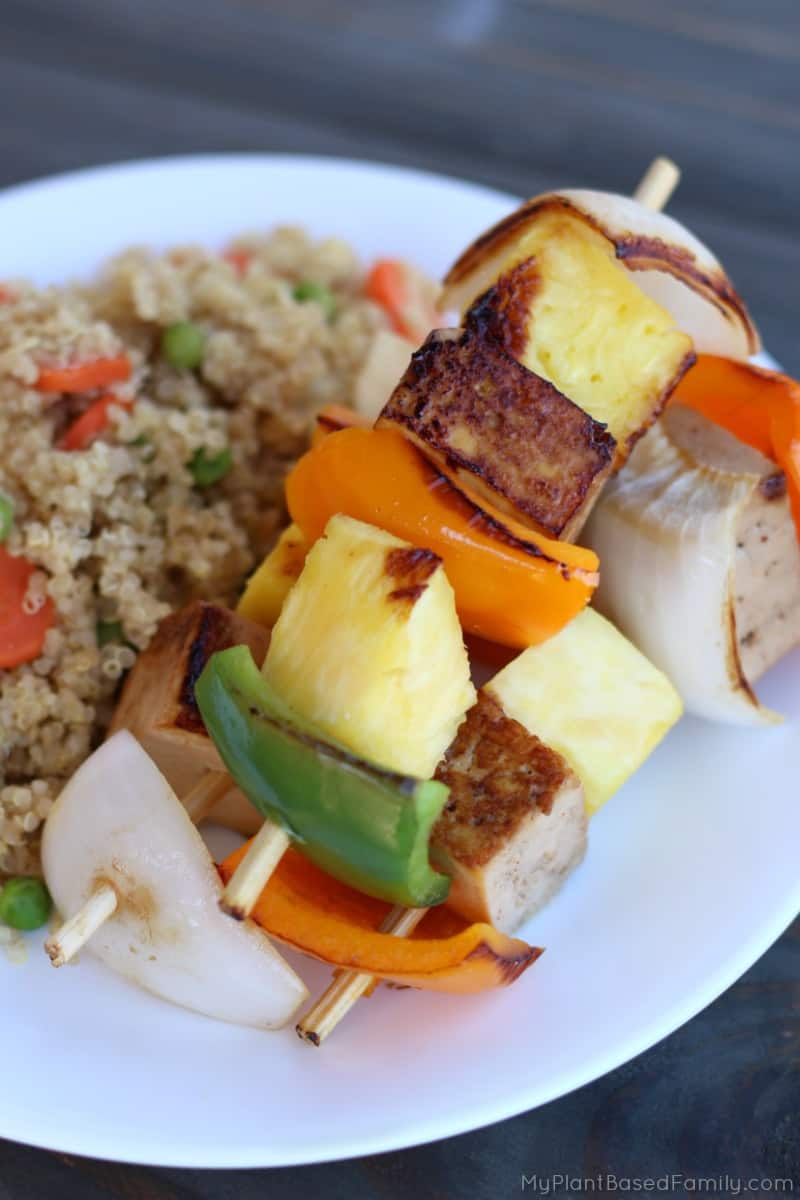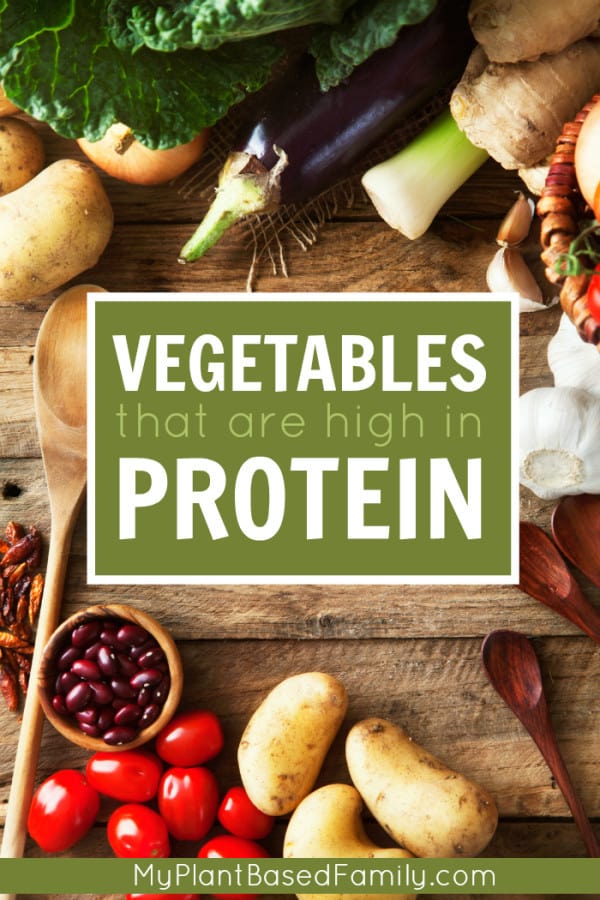Before I learned about a plant-based diet I had never tried tofu. I thought it was a manufactured, non-food but I was wrong! Tofu is a great addition to both plant-based and non plant-based diets. This Tofu Starter Guide will give you the basics so you can try it now!
Tofu is basically beans, soy beans, soy bean curd to be more specific.

This page contains affiliate links.
Tofu can often be intimidating if you grew up without it. It’s not a bad kid, just misunderstood. Yes, I joke but really, don’t be afraid of tofu. Give it a try, then maybe once more, then make your decision.
If you can’t have soy, then you’ll want to skip it. Although some people make tofu from chickpeas. I’ll take the inexpensive, prepared tofu, thanks.
Tofu is extremely versatile! You can do so much with it. I usually just cube it and bake or saute it. Sometimes I’ll even use my air fryer but I keep it simple.

Types of Tofu
Tofu is classified by firmness, the firmness will determine the best way to use it. Tofu ranges from extra-firm, firm, sprouted, soft, and silken. You’ll find other types out there too. The more firm the tofu, the more easily it holds its shape, the less moisture it has. I’m only going to share about a few types of tofu, these are the ones I see in the store and have tried.
Silken Tofu
Silken tofu contains the highest moisture content and lends itself to recipes such as soups, sauces, spreads, and dips. A lot of dessert recipes use silken tofu for faux cheese cakes and puddings. I don’t typically use Silken Tofu, its just not my preference.
Soft Tofu
Soft tofu undergoes the same process as the more firm varieties of tofu, but has a higher water content. It does come in a solid block packed in water but does not have the same smooth texture as its silken counterpart. It is the one least used in recipes and can be substituted for silken if blended well enough. I never use soft tofu.
Firm and Extra Firm Tofu
Firm and extra firm tofu is what you will usually see in savory recipes. They have a low moisture content and hold their shape well. I always choose Extra Firm Tofu if there is an option, I would use Firm in a pinch.
I use Extra Firm Tofu to make Tofu Scrambles, crispy baked tofu, and all kinds of Asian-inspired recipes.

What’s a Tofu Press
Even though Extra Firm Tofu has less moisture it’s still usually too much. To fix this I use an EZ Tofu Press. It’s a little contraption that is used to squeeze water out of tofu. I’ve also used towels and heavy books and/or cans but I found the EZ Tofu Press to be much easier! I’ve been using it since 2017 and it works just as good today as it did two years ago. There are a lot of different kinds of tofu presses out there, they will all work, just read the reviews before purchasing.

Maximizing Tofu Flavor
One of the great things about cooking tofu is the lack of flavor profile. It doesn’t really taste like anything. Trust me, this is a good thing. Tofu adapts the the flavor of marinade and seasonings used or other items it is cooked with. This works for both the softer and firm varieties.
I usually drain my tofu, press it for 15 minutes or so, then season or marinate tofu while I’m getting other ingredients ready. If I’m baking tofu, I’ll try to marinate it early because it can take longer to bake it than it does to saute it.
Buying Tofu
Tofu can be found in many local big box grocery stores in the health or specialty food section. You can also find it in small Asian markets or online. I usually buy it at Fry’s which is a Kroger store or Sprouts Farmers Market.
I prefer to buy organic tofu in the refrigerated sections, usually in the healthy food area or near dairy or vegan products. It’s usually in a plastic tub with water inside. I usually pay between $2-$3 for a container, sometimes less, when it’s on sale. You can find shelf stable versions but I prefer the refrigerated versions.

Is Tofu Healthy
There are countless studies claiming both the health benefits and dangers of tofu and soy. I’ve read opinions on both sides and decided that tofu is a good choice for our family. I only use organic tofu!
We don’t have tofu as often as I’d like. It’s pretty easy and inexpensive, especially compared to our meat eating days. Our adult daughter lives half way across the country, she recently discovered her love of tofu. Even though she is not plant-based, she has incorporated tofu into their weekly meals. Last week she told me, “I never have to touch raw chicken again.”
I don’t have many tofu recipes but I plan to add more soon!
Do you love tofu? Which kind do you prefer and how do you prepare it?






